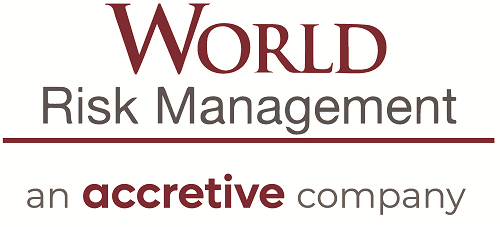Hurricane Matthew — which wreaked havoc in Florida, Georgia and South Carolina and flooded large portions of North Carolina in 2016 — is a grim lesson on why companies need business interruption insurance.
The hurricane damaged or destroyed more than one million structures and cost $10 billion in damage.
Although the theme parks in Central Florida shut down for only a few days, businesses in flood-ravaged North Carolina were much slower to reopen.
By the time meteorologists identify a hurricane nearing the country and give it a name, it’s too late. Insurance coverages are already set, and businesses are forced to wait out the storm to see what damage it does.
Recent hurricanes, floods and earthquakes are a good reminder for businesses to review insurance policies to make sure they’re covered in the event of a natural disaster. Here are a few things to consider.
Don’t underestimate how long business will be interrupted.
When reviewing business interruption insurance options, it can be tempting to save some money and choose less coverage, especially if a business hasn’t lived through a hurricane, earthquake or flood. It’s easy to underestimate how much damage can be caused and how long a business will actually be interrupted.
Almost 40 percent of small businesses don’t reopen after a disaster because they’re not properly covered. In some cases, a business may reopen just a few days later, but it could feel the effects of the event long after it’s back up and running. Business owners, review your policy limits now to make sure they’re adequate. Make sure your coverage includes extra expense as well. It’s best to be as prepared as possible.
Make sure suppliers are covered.
A business might not be directly affected by a hurricane or earthquake, but its suppliers might be. Business owners, if you can’t get raw materials to make your products, or if you can’t deliver them, you might need contingent business interruption (CBI) to cover your suppliers. Contingent business interruption will reimburse lost profits as a result of a disruption in your supply chain. Review your policy now to assess what weather events trigger all of your business interruption coverages and the limits provided.
Review payroll coverage.
If a business has been impacted by a storm, operations might be stalled for several weeks or months. If a business employs skilled professionals, it likely wants to ensure that they can continue working when the business is back up and running. If a business requires people to work in a specific location or with specific tools, business owners want to ensure talent is paid while the business is being rebuilt.
It’s important for a business to determine which classes of employees should be covered during a period of restoration and any exceptions to employees are addressed and defined appropriately covered as “ordinary payroll” under business interruption coverage as well.
Create a disaster recovery and communications plan.
In addition to making sure that a business has adequate insurance to cover necessary repairs and rebuilding following a weather event, it’s vital to have a disaster plan that covers technical aspects of what’s needed to get the business up and running again. Similarly, owners need a communication plan that outlines how to alert employees about the status of the business.
Often, businesses’ insurance policies are not top of mind until an actual loss occurs. However, it’s important to review policies and plans regularly to make sure they align with current business. For example, if a business is going through major growth, you may want to ensure its business interruption policy adequately covers the loss of expected revenue.
If a business makes organizational changes, they may want to revisit who is and is not covered under payroll insurance. Putting these policies into place now, and learning from the mistakes of others, can help you deal with a disaster if — and when — it strikes.
Source : PropertyCasualty360

